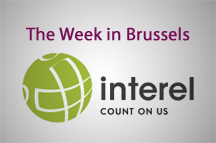 European Parliament to cut down its size
European Parliament to cut down its size
Expecting a parliament to vote to reduce its number may seem a bit like asking turkeys to vote for Christmas, but the European Parliament (EP) has done just that.
The context of course is Brexit and what to do with the 73 seats left vacant by the departing British MEPs. In times of budget cuts, the opportunity to make savings on a 10% reduction in size would seem irresistible, but MEPs this week voted to only reduce the overall size from 751 members to 705, with the remaining 27 seats redistributed to countries that feel under-represented. If the changes go through, and it’s a big IF as the more frugal Member States must still give their approval, it would see countries like France and Spain gain five more MEPs apiece.
The vote has also left open the possibility in future elections of MEPs being elected on trans-national lists. This is a step too far for the centre-right who argue that citizens already have a hard time knowing who their local MEP is.
MEPs to set out views on future UK/EU trade relationship
Brexit is never far from the Brussels agenda and EP coordinator Guy Verhofstadt toured committees this week to explain their next actions.
While welcoming the December agreement, which must now be put into a formalised legal text, he argued that more work was needed on the procedure for EU citizens to acquire their new status. This must not be costly or burdensome and would only begin after the end of the transition period and not when the UK exits on 29 March 2019.
The EP will table a new resolution in March to set out their position on the future UK/EU trade relationship, with the aim of influencing the negotiating guidelines the Council is due to adopt on 23 March.
Bulgarian ministers get a rough ride
It was a busy week for Bulgarian Ministers who set out their priorities for the next six months as Bulgaria assumed the rotating six-month presidency of the EU Council for the first time.
It was not an easy ride for the newcomers, with MEPs targeting Ministers from the ultra-nationalist United Patriots party. The Environment Minister, Neno Dimov, came in for particular criticism from members of the Environment Committee for being a climate-change denier. His response was far from reassuring. He would maintain, he argued, the political consensus in Europe on climate action but he claimed there was never scientific consensus on issues like the climate, as science was always questioning and searching.
Berlusconi is back
Silvio Berlusconi’s rehabilitation into the bosom of the EPP family was cemented this week with a high-profile visit to Brussels, where EPP leaders were falling over themselves to welcome back the favourite to win March’s Italian elections.
He was given a particularly warm welcome by EP president Antonio Tajani, who is in the running to be his Prime Minister. The elections could also tempt Socialist Group leader, Gianni Pittella to swap Brussels for Rome.














